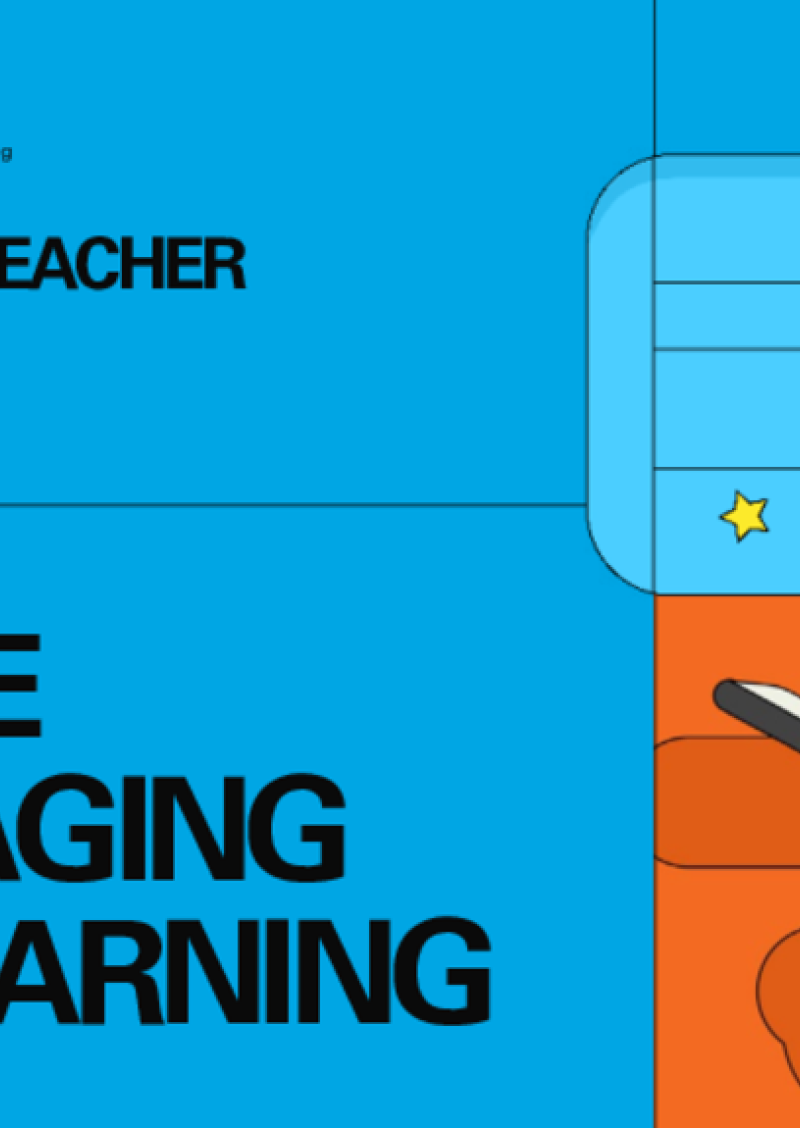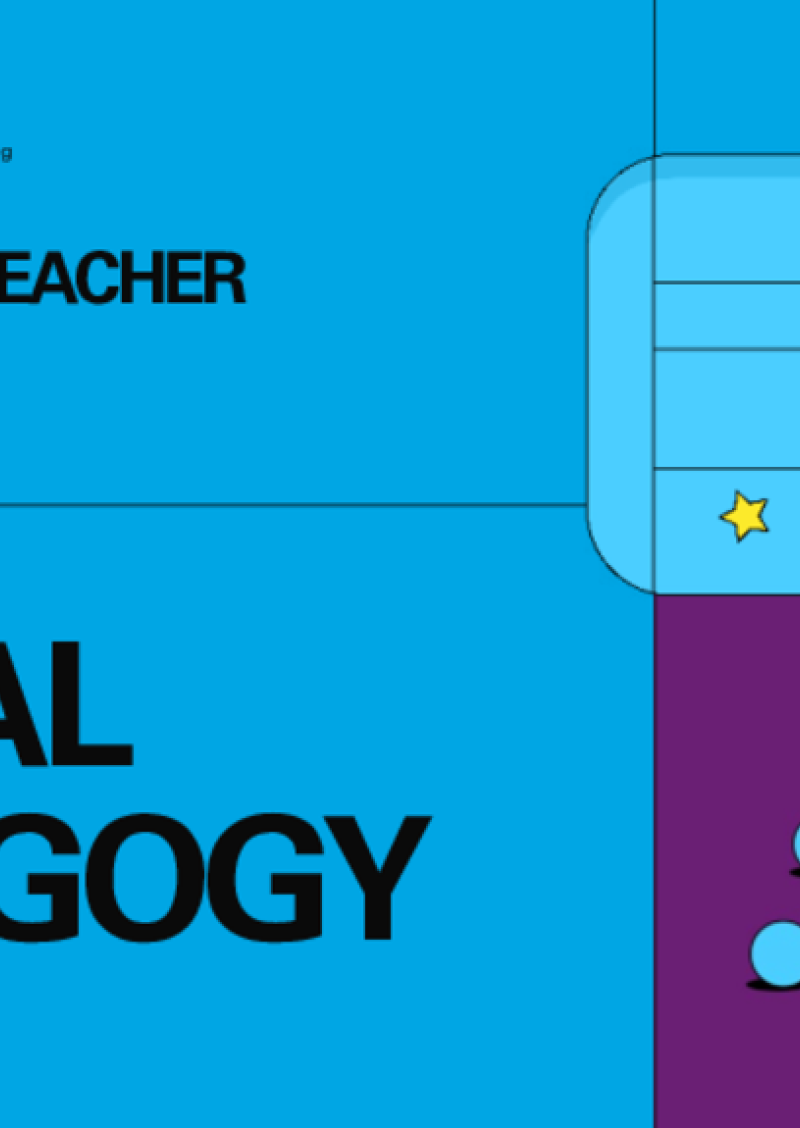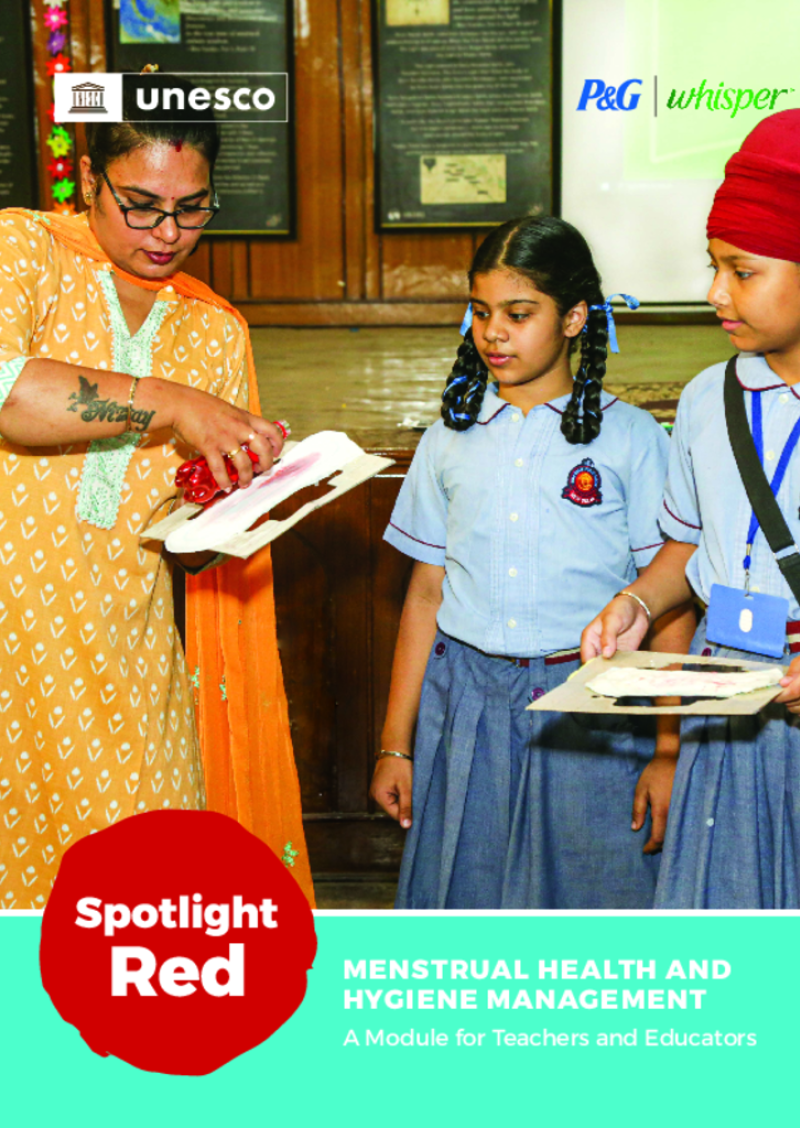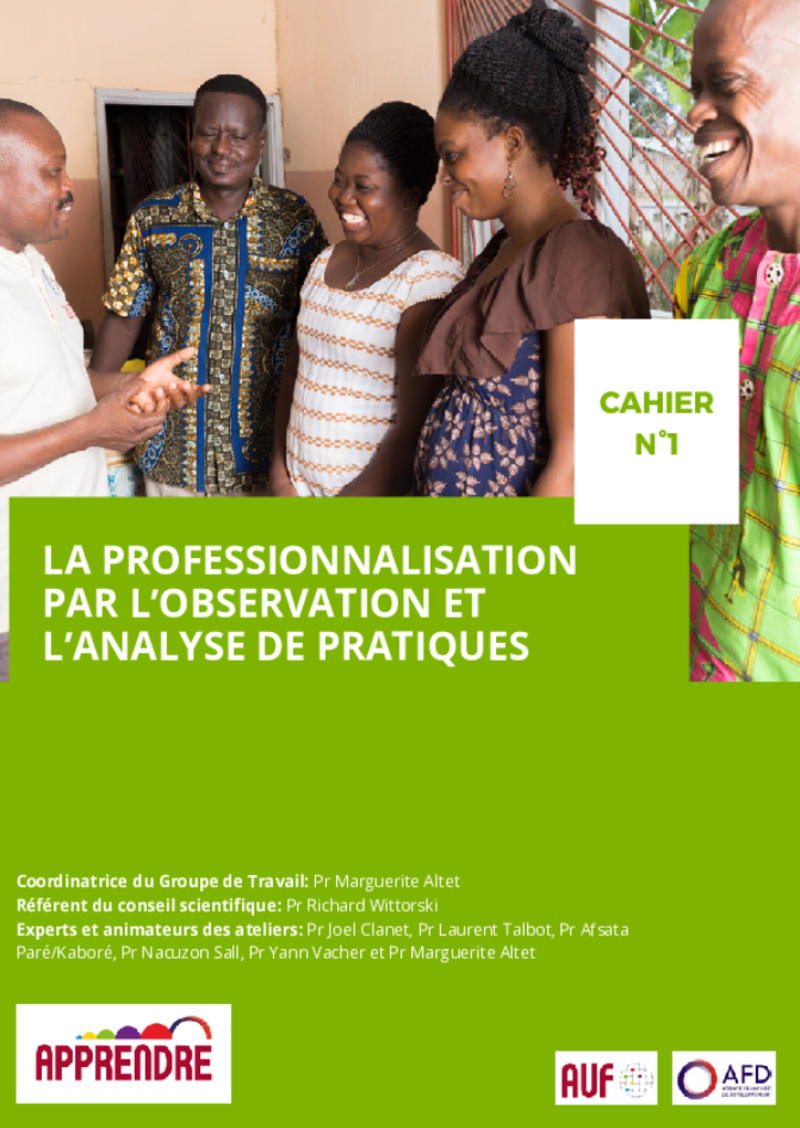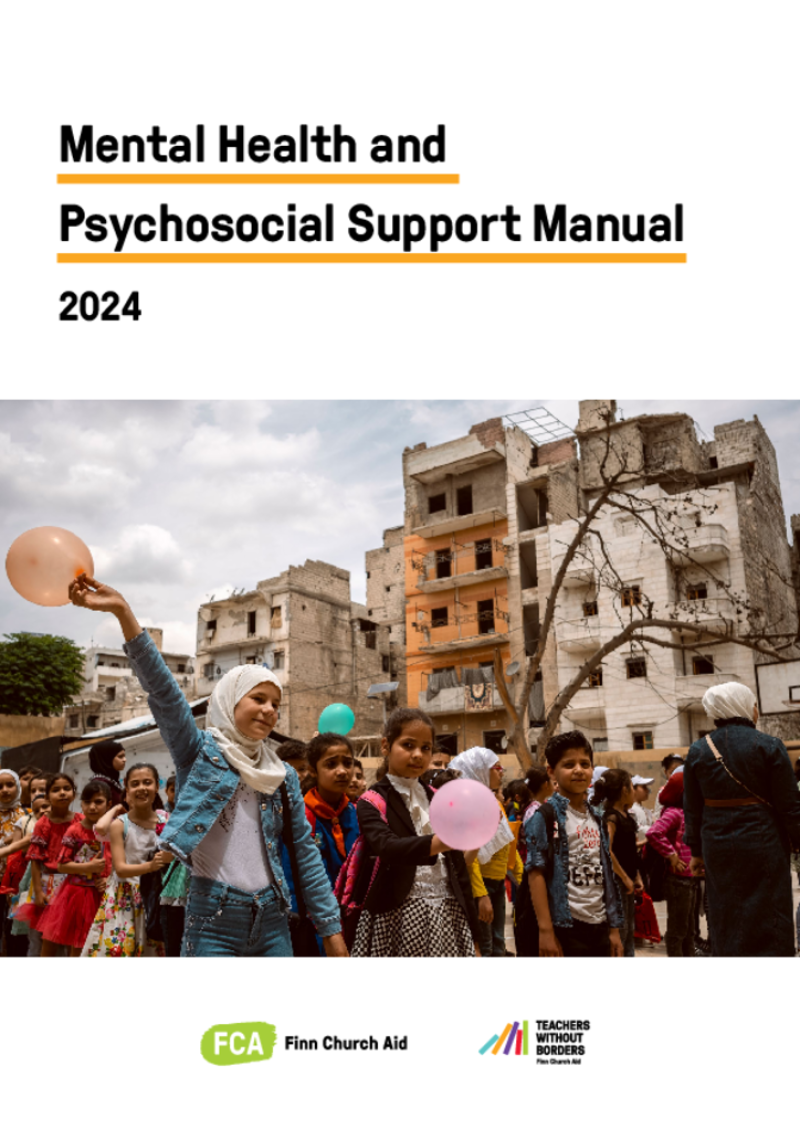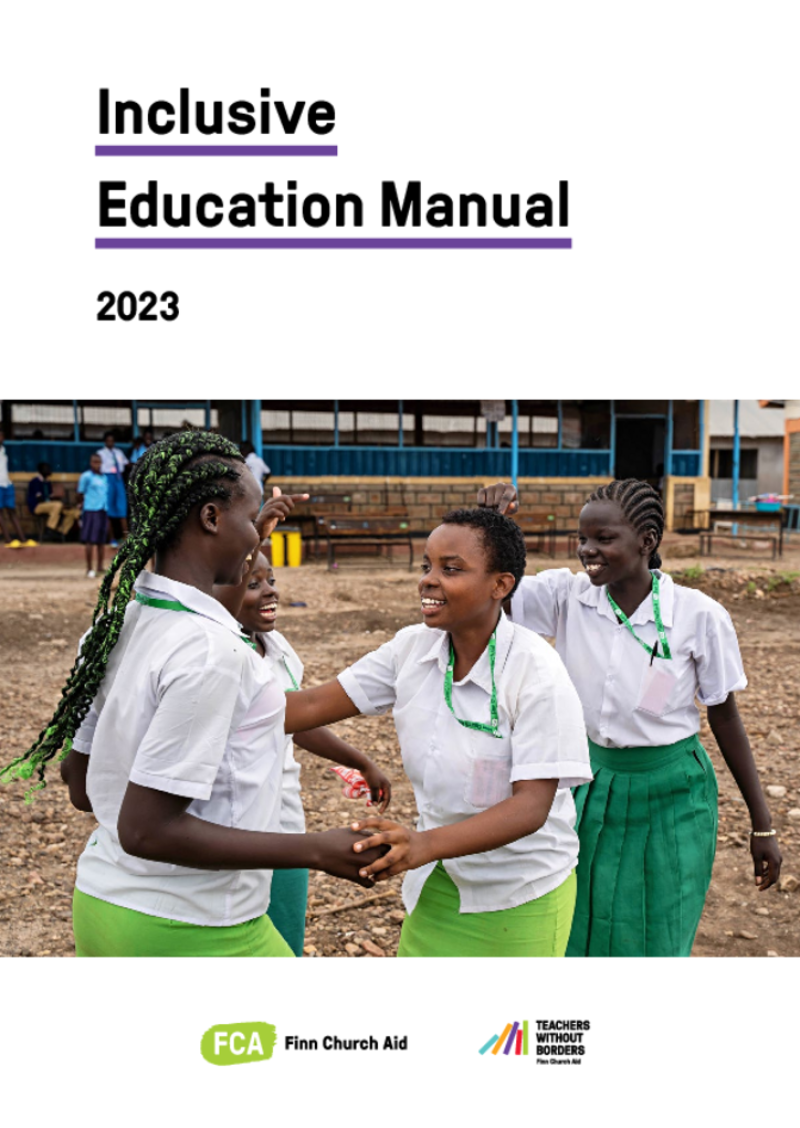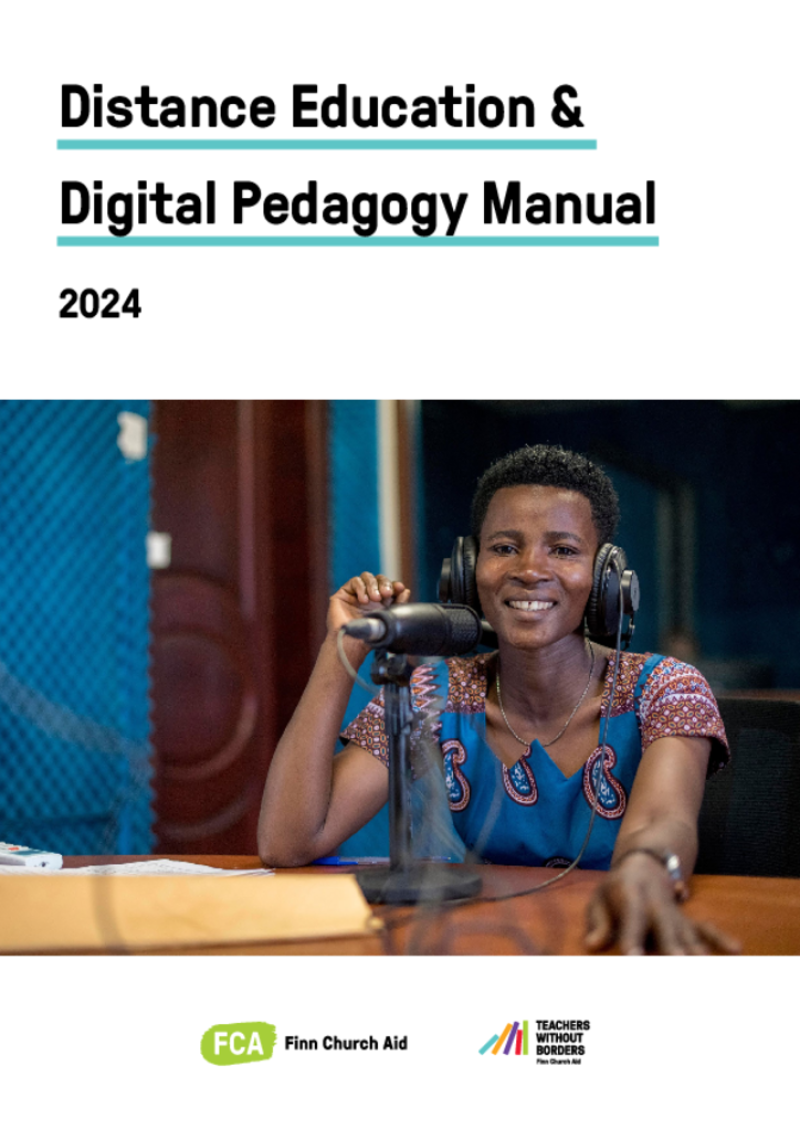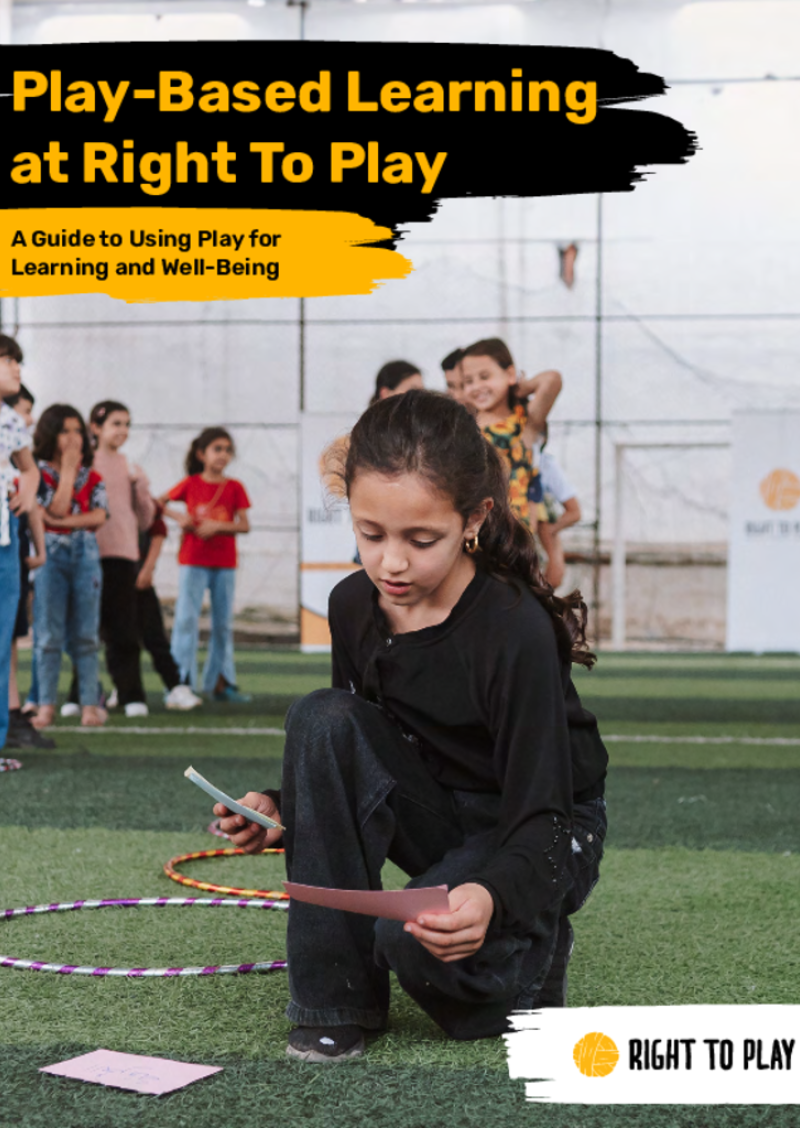Centro de Recursos para Docentes
Visualizar 1 - 20 de 80
Superstar Teacher Toolbox - Mobile Messaging for Learning
This publication by the UNICEF Office of Innovation explores the transformative potential of mobile phones in education. It highlights how mobile devices, particularly messaging platforms, have become essential tools for learning continuity and accessibility. The guide emphasizes the role of teachers in advocating mobile learning, outlines pedagogical strategies for message-based teaching, and addresses ethical considerations, planning, and content creation. By leveraging mobile connectivity, educators can foster inclusive, flexible, and impactful learning experiences across diverse contexts.
Superstar Teacher Toolbox - Digital Pedagogy
This resource part of UNICEF’s Superstar Teachers Toolbox, empowers educators to integrate technology meaningfully into their teaching. Designed for both novice and tech-savvy teachers, it offers practical strategies for planning and implementing digital pedagogy. The guide emphasizes learner-centered approaches, strategic use of digital tools, and pedagogical priorities. Structured into three chapters -planning, implementation, and additional resources- it supports educators in enhancing student engagement, creativity, and achievement through thoughtful digital transformation in education.
Menstrual health and hygiene management: a module for teachers and educators
This publication is part of a series of teaching-learning modules developed by UNESCO and P&G Whisper India with the goal of integrating period and puberty education in school curricula. The series is structured into five modules that address key intervention areas related to MHHM, including: 1. building a curriculum that understands the biological and social impacts of puberty; 2. guiding teachers on the menstrual hygiene education curriculum; 3. providing teaching-learning materials geared towards addressing the specific needs of girls with disabilities; 4. highlighting the impact of gender inequalities on menstrual health and hygiene for both girls and boys; and 5. addressing nutritional approaches related to menstrual health and hygiene. This teaching-learning module was developed for teachers working in various contexts and with diverse needs and aims to support them in initiating conversations around MHHM and including the subject in school curricula for students across the gender spectrum. The purpose of this module is to provide facilitators with multiple and comprehensive strategies that lead to positive changes in attitudes, behaviours and practices around menstruation. Each chapter contains explanations of the subject at hand, stories, case studies, learning activities, illustrations and tables designed to provide a better understanding of the issues surrounding MHHM. A glossary is also included to ensure that you, the reader, become familiar with different terms related to menstruation.
La professionnalisation par l'observation et l'analyse de pratiques
Le guide propose une analyse réflexive des pratiques professionnelles pour le développement et l'amélioration de l'enseignement. Il contient six fiches-action, allant de l'analyse des pratiques et représentations sociales, au dialogue entre experience et savoir théoriques. Ces fiches peuvent être utilisés comme outil de formation initiale par des formateurs ou en autonomie par des enseignants en travail collaboratif ou en co-formation, ou par un enseignant seul en autoformation qui souhaite travailler sa pratique réflexive pour améliorer la qualité de son enseignement-apprentissage.
Guide - Mise en oeuvre d'une communauté d'apprentissage professionnelle en milieu scolaire
Ce guide destiné aux enseignants et directeurs d’établissement vise à faciliter la création de communautés d’apprentissage professionnelles (CAP) dans les écoles. Il résulte de recherches collectives et est conçu pour une utilisation autonome. Le guide se divise en trois chapitres : le premier clarifie le concept de CAP, le deuxième propose des outils pour leur mise en place et suivi, et le troisième explore l'usage des TIC pour leur développement. Il encourage la collaboration et le partage d’expertise pour améliorer les pratiques pédagogiques et le développement professionnel continu des enseignants.
FCA & TWB Mental Health and Psychosocial Support Manual
THIS TEACHER TRAINING MANUAL on Mental Health and Psychosocial Support (MHPSS) is developed by Finn Church Aid (FCA) and Teachers Without Borders (TWB) Finland. The manual contains guidance and practical steps for integrating elements of psychosocial support in the teaching and learning process. It is designed to be facilitated by trainers, local educators and community workers to the benefit of teachers, children and youth.
The training manual consists of six (6) training modules that can be used flexibly. The first three (3) modules are meant for supporting the teachers' wellbeing, and the last three (3) modules are meant for the classroom support for learners' wellbeing. The modules include the following sub-topics:
- Stress and relaxation
- Compassion
- How to identify and support learners with MHPSS concerns as a teacher
- Recreational activities for MHPSS
- Social and emotional learning
- Life skills
The content design allows you to pick individual modules or sessions and adapt the training content according to the context’s needs. We hope you find it useful!
FCA & TWB Inclusive Education Manual
This Teacher Training Manual on Inclusive Education supports teachers and other education personnel’s continuous professional development in inclusive, quality education especially in diverse low resource contexts and is adaptable for use anywhere in the world. The Inclusive Education Manual directly contributes to realization of several targets of the Agenda 2030 Sustainable Development Goal (SDG) 4 “ensuring inclusive and equitable quality education for all”.
The manual was developed by Finn Church Aid (FCA) and Teachers Without Borders (TWB) Network Finland. The content has been collected and built on the numerous good materials and practices used and co-developed by FCA staff and TWB education experts in different countries and contexts.
The training manual consists of three (3) training modules that can be used flexibly:
- Education, Teacher and School Community,
- Inclusive Education, and
- Positive Classroom and Learning Environment for All Learners.
The content design allows the trainer or facilitator to pick individual modules or sessions and adapt the training content according to the context and target group’s needs.
We hope you find it useful!
FCA & TWB Distance Education & Digital Pedagogy Manual
This teacher training manual on Distance Education & Digital Pedagogy supports teachers and other education personnel’s continuous professional development in pedagogically high-quality distance education and remote learning especially in diverse, low resource contexts and is adaptable for use anywhere in the world.
The manual has been developed by Finn Church Aid (FCA) and Teachers Without Borders (TWB) Finland. The development of the training materials began already in 2020 as a response to the school lock-down situations caused by the COVID-19 pandemic, when teachers and learners quickly had to adapt to remote education modalities. Even though the pandemic has subsided, the need for quality distance education prevails. Ensuring the continuity of learning for all learners is critical in all contexts, even and especially during crisis situations.
The training manual consists of eight (8) training modules that can be used flexibly:
- Distance Education,
- Distance Education Modalities,
- Pedagogy of Digital and Distance Education,
- Psychosocial and Emotional Wellbeing,
- Learner-Centred Methods in Distance Education,
- Home Support – Parents and Caregivers’ Role and Collaboration,
- Inclusive Education, and
- Assessment and Evaluation.
The content design allows the trainer or facilitator to pick individual modules or sessions and adapt the training content according to the context and target group’s needs.
We hope you find it useful!
Differentiated Instruction in Displacement Contexts. Workshops Facilitation Guide
In this guide, there are prompts to support exploration of the content and application to the local context. There are also tips to support educators as they make space and time for professional learning within their busy and, often, stressful lives. Finally, this guide offers some advice regarding online, and/or other technological aspects, of this training.
The Quality Holistic Learning Project (QHL), of which this face-to-face workshop is one element, aims to prepare educators to deliver high-quality lessons which support holistic learning for children and youths of diverse backgrounds (refugee, migrant, and/or citizen) within host country, displacement, and crisis contexts. They define quality holistic learning as that which attends to:
- academic, cognitive, and identity development,
- social and emotional learning, and
- mental/psychosocial and physical well-being and which delivers: positive schooling experiences, ● feelings of belonging and safety, growth and development, and equitable outcomes for all learners.
Asset (Strength) Based Pedagogies for Quality Holistic Learning
This open, self-paced course, Asset (Strength) Based Pedagogies for Quality Holistic Learning, was designed by teachers for teachers, especially those working with refugee and vulnerable learners around the world. It is intended to provide an overview of key terminology, concepts, and practices related to asset (or strength) based pedagogies.
Educators who complete this short online course will:
- gain a working understanding of what asset-based pedagogies are and why they are important
- be able to identify ways in which asset-based pedagogies can be applied in the classroom
- examine how to apply asset-based pedagogies in the context of their own work
It will take 3-4 hours, on average, to complete this course. A certificate of participation will be issued upon successful completion. Thank you for your interest and for your commitment to your professional learning and to teaching!
A handbook for use offline is currently being developed, as a parallel tool for learning about asset-based pedagogies. Please contact jkasper@ceinternational1892.org to discuss piloting of this additional material.
Unlocking Potential: How Generative AI Can Help Enhance Career Readiness
Generative AI has the potential to make career education more accessible and impactful by offering personalized guidance and automating routine tasks. By leveraging AI, educators can design more efficient, tailored learning experiences, ensuring that every student—regardless of background—has access to the knowledge, tools, and opportunities they need to prepare for future success.
Join us on October 29th at 2:00pm GMT, as Sumit shares insights from his action research on how Generative AI can enhance career readiness for students from underserved communities, highlighting how one can leverage technology like GenAI to bridge educational gaps and equip students with the skills needed to thrive in future careers.
Register here
A Guide to Using Play for Learning and Well-Being
Right To Play uses a variety of approaches to play to support children’s learning, development, and well-being, including sports, music, theatre, art, and play-based learning.
This document focuses on the play-based learning methodology and approach, and how it can be used for learning and development goals related to Right To Play’s core programmatic areas: early childhood care and education, primary education, gender equality and girls’ well-being, and psycho-social support.
